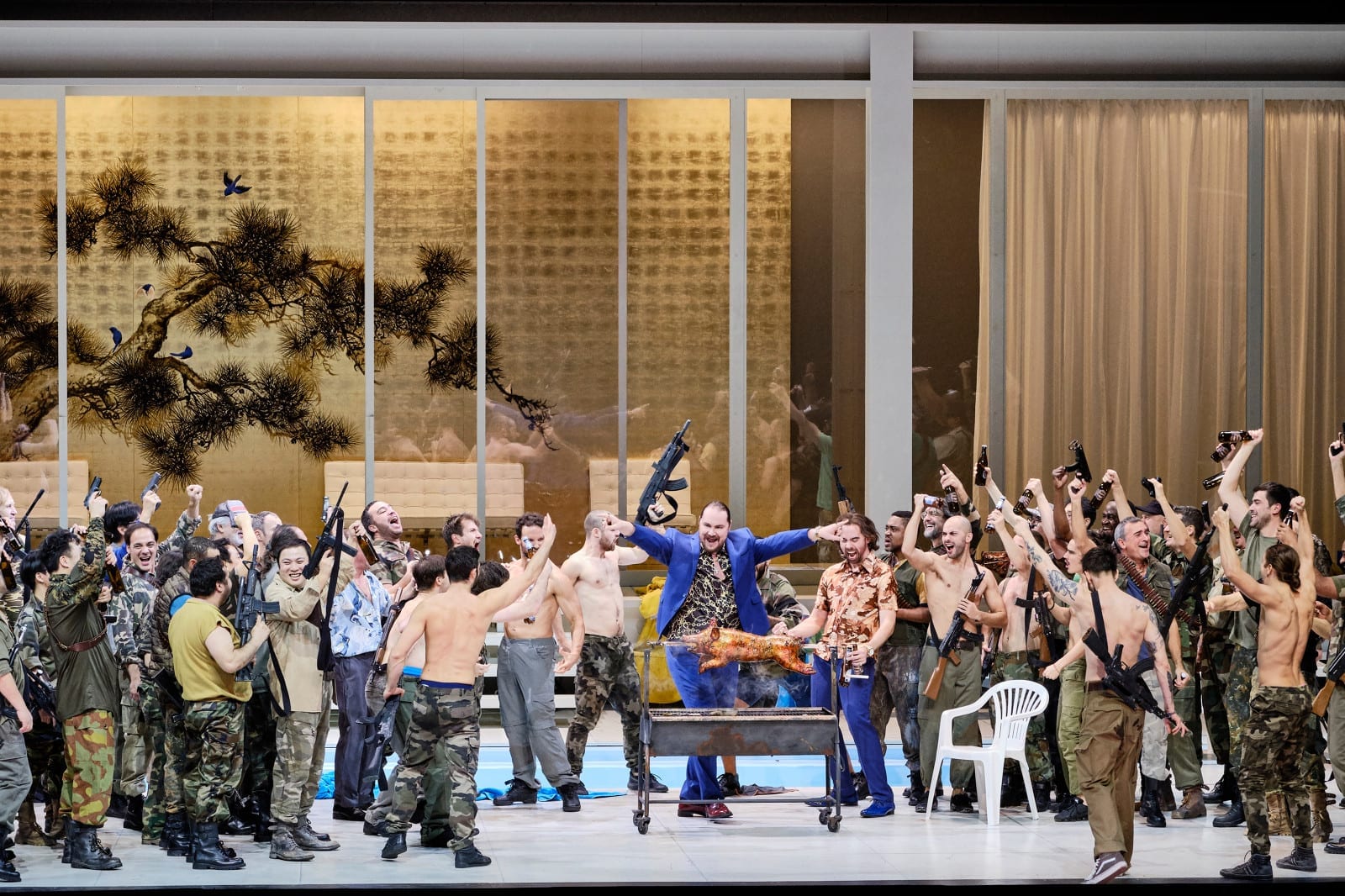With this production, directed by Barrie Kosky, Prince Igor by Borodin finally enters the repertoire of the Opera de Paris. Borodin, who besides being a composer was also an accomplished chemist, worked 18 years on his only opera, and after his death only the vocal score and some orchestral parts had been completed. Rimsky Korsakov and his pupil Glazunov orchestrated and edited the unfinished parts; however, the opera remains dramatically fragmented and different performance practices exist. In this current production, the opera is presented in the following structure: prologue, Act I, Act II, Ouverture, Act IV. The whole of the Act III is omitted apart from Igor’s monologue, orchestrated by Pavel Smelknov and inserted at the beginning of Act IV.
Inspired by the medieval poem The Tale of Igor’s Campaign, the opera tells the story of Prince Igor’s unfortunate battle against the nomadic Polovtsians led by the Khan Konchak and of Igor’s subsequent capture and release. However, in this production, Kosky makes no acknowledgement of the usual approach of this as Oriental, opulent entertainment and instead gives us an original if somewhat crude rendering of political power and of its loss.
By translating the setting into an unspecified contemporary military dictatorship, Kosky removes any sense of this being a legendary epic tale: the scene of the eclipse of the sun in the prologue is interpreted as a seizure of Igor in a gilded orthodox church setting, rather than the bad omen of the original. Prince Galitsky, who takes over the command of the city in Igor’s absence, sees his new power as a chance to involve himself in partying and the rape of young girls in the setting of a sort of oligarch’s villa. But it is in the central part of the opera that the climax is reached: in a neon-lit chamber the prince is taunted and tortured by the Khan who is not the enlightened tyrant of the original, but a sadistic person whose words and acts are in contradiction to his public image. The effect is chilling and powerful: even the famous Polovtsian dances become a sort of magical ritual with costumes inspired by the Sacre du Printemps rather than refined entertainment. Finally, instead of the return of the king, we see the refugee population crowning a poor fool in a motorway layby. The aesthetic of the staging follows Igor’s downward spiral from the sacredness of the gold to the humiliation of the tarmac.
Borodin was part of the group of five Russian composers who wanted to create an authentic Russian style rather than imitating the western European tradition. The music of Prince Igor is a clear example of this style where the solidity of the choirs, rooted in the orthodox tradition, and the popular tunes contrast with the Oriental chromatic lines of the foreign Polovtsian. The Paris Opera orchestra can deliver the power required by this style of music; however, the conduction of Philippe Jordan seems to rush through without any attention to the nuances and opulence of the score.
Fortunately, the singers are all great, with the female voices in the lead. Anita Rachvelishvili in the role of the passionate Princess Kontchakovna mesmerises the audience with the perfect control of her voice and her powerful low notes. The Russian soprano Elena Stikhina shines with the dramatic force of her singing and acting, totally committing herself to the role of Iaroslavna and keeping the audience on edge. Pavel Cernoch interprets the role of Vladimir correctly, although vocally appears too restrained for my taste, and Dmitry Ulyanov interprets the villain Galitski convincingly. Dimitry Ivashchenko powerfully sings a sadistic Kontchak as Kosky intended, and we could have seen more of him if the third act hadn’t been completely abolished. Finally, Ildar Abdrazakov interprets the downfall of Igor with intensity and credibility. In this dramatically and musically cogent presentation, Prince Igor comes across as a major success.

